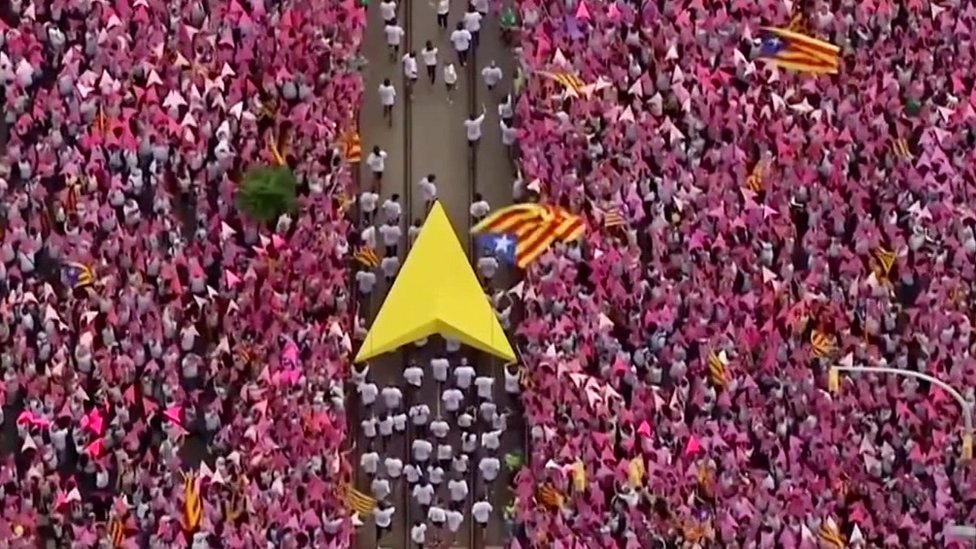

Its regional government is the most indebted in the country in absolute terms and the third most indebted relative to its GDP. The area is suffering the consequences of economic crisis and scandals of political corruption as the rest of Spain. According to an EU study, Catalonia has the worst regional government in Spain in terms of corruption, effectiveness and accountability, with a level comparable only to some regions in Greece, Italy and former Eastern Bloc countries. Although Catalonia is a rich region, it is very far from these benchmark cases. Nationalist leaders claim that an independent Catalonia would be like the Sweden, Netherlands or Massachusetts of the south of Europe. However this argument does not justify the claim for outright independence and seems to resonate more with the stance of the Padanian Lega Nord and Flemish Vlaamse Beweging than with the anti-colonialist ideal many foreign sympathisers of the Catalan nationalist cause have in mind. This anti-redistribution argument is the most compelling among those used by Catalan nationalists and most Spaniards would be in favour of renegotiating the autonomous communities fiscal and redistribution model. All Catalan nationalist parties including the left-wing ERC and ICV have claimed that there is excessive solidarity within Spain and that a much larger share of the taxes collected in Catalonia should stay in Catalonia. One of the most popular arguments in the nationalist rhetoric is ‘Spain steals from us’ ( ‘ Espanya ens roba’). The GDP per capita in Catalonia is 18% higher than that of Spain and 70% higher than that of Extremadura, the poorest region in the country. The tax revenues collected in Catalonia are crucial for the redistributive function of the Spanish government. It also has arguably the most vibrant cultural life in Spain. It displays better levels of public services, education, industrial development and occupation than the majority of Spanish autonomous communities. But are Catalans voiceless, oppressed and/or exploited by Spain? Would Catalan independence contribute to a more egalitarian world? The answer is no.Ĭatalonia is one of the richest autonomous communities and the biggest economy in Spain. Many of them have a simplified and idealised vision of the situation in Catalonia and see this cause as another liberation movement in the line of the anti-colonial struggles in Africa or Asia during the 20th century. Misunderstandings about CataloniaĬatalan independence is gathering a noticeable amount of support among activists and political movements abroad. Worse even, there are great (and increasing) risks of derailment of the train to independence. However the final destination may not match the idyllic depiction passengers were given before the trip. The latest opinion polls and mass mobilisations suggest that many Catalans have taken their estelada flag and jumped onto the train with the hope of leaving Spain and the economic crisis behind. Nationalist political leaders and commentators have already warned (the rest of) Spain to clear the path and not to interfere or a crash of trains is to take place. They describe Catalonia’s independence process as an accelerating train that will not stop until it reaches the inevitable final stop of independence. “Mission accomplished” claimed the organisers and sponsors of the event, including the Catalan regional government Generalitat. This well organised and largely peaceful display of patriotic fervour coincided with celebration of Catalonia’s national day, Diada, and aimed to return the attention of the international media to the issue of Catalan independence. On 11 September 2013 hundreds of thousands of people formed a human chain to demand the secession of Catalonia from Spain.


 0 kommentar(er)
0 kommentar(er)
